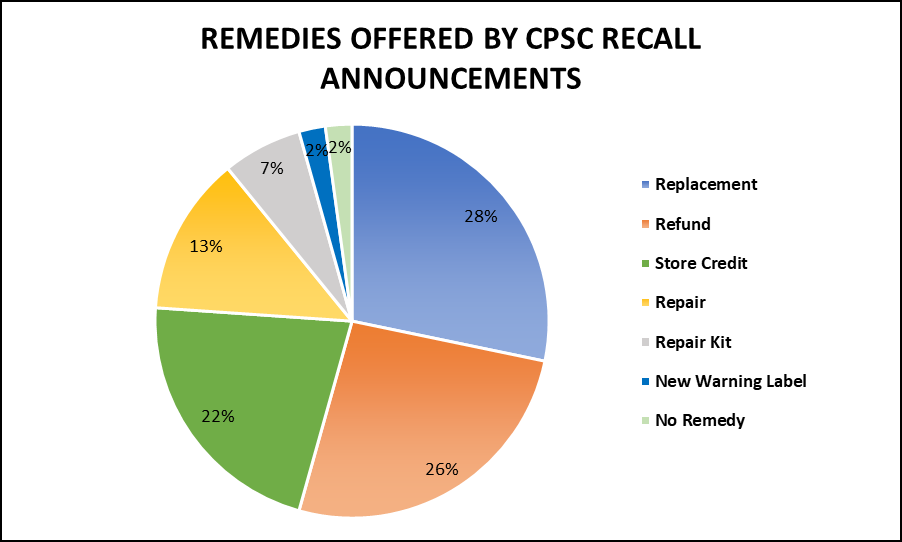Recalls in Review: A monthly spotlight on trending regulatory enforcement issues at the CPSC.
Electric scooters have taken American cities by storm as micromobility companies expand to meet consumer demand for more convenient transportation options. As with bicycles, scooters have become a go-to option for consumers who are seeking socially distant activities and modes of transportation amid the COVID-19 pandemic.
The regulation landscape for powered scooters is still being charted. Although a federal safety standard which addresses electrical systems and lithium-ion batteries in personal e-mobility devices (ANSI/CAN/UL 2272) exists, there is no corresponding safety standard for regulating the overall operational, mechanical, or electrical safety aspects of powered scooters. Additional standards may be promulgated in the near future, however. The American Society for Testing and Materials (ASTM) Consumer Products Subcommittee on Powered Scooters and Skateboards (F15.58) has begun developing a proposed standard intended to minimize the common hazards associated with use of commercial electric-powered scooters by adults.
Given the lack of a mandatory federal safety standard for powered scooters, it is unsurprising that recalls of powered scooters were infrequent in in the first two decades that the products were on the market. The Commission has conducted 34 total recalls of powered scooters. Only nine of the recalls occurred between 1996 and 2015. The small enforcement “spike” in 2005 corresponds with CPSC efforts to track emergency-room visits related to powered scooters. At least 10,015 emergency room-treated injuries occurring between July 2003 and June 2004 were related to powered scooters. Recalls increased dramatically as hoverboards (also referred to as “self-balancing” electric scooters) were introduced to the market. Fourteen recalls of powered scooters were conducted in 2016 alone, closely followed by another ten recalls in 2017.
Hoverboards are the most frequently recalled type of scooter with 21 hoverboard recalls to date. All of these recalls occurred in 2016 or 2017 and were related to the vehicle’s lithium-ion battery pack potentially overheating, posing a risk smoke, fire, or explosion. The CPSC Office of Compliance has previously stated that the Commission considers hoverboards that do not meet the applicable voluntary standards (UL 2272 and UN/DOT 38.3) to be defective products that may pose a substantial product hazard to consumers. All manufacturers, importers, distributors, and retailers of hoverboards (and other powered scooters) should review their product lines to ensure that their products comply with the voluntary standards.
Recalls for traditional electric-powered scooters have been conducted for a wide variety of reasons, including: failure of the break caliper, improper wiring and wire insulation, and breakage of the weld that connects the handlebars to the scooter frame. Motor scooters, gas-powered scooter vehicles upon which a user sits, and water scooters have each been the subject of two recalls. The motor scooter recalls were conducted because the scooters would accelerate suddenly while in use. The water scooter recalls were conducted because hydrogen gas could build up in the battery compartments and cause the battery cover and battery package to forcefully expel from the scooter.
Powered scooters, and hoverboards in particular, have become a popular choice for winter holiday gifts. Consumers should keep themselves up to date on powered scooter recalls as the holidays approach, and follow instructions for replacement or refund (and proper disposal methods) if necessary. Replacement, refund, and store credit are the typical remedies offered by recalling firms. Less often, the remedy may be limited to repair by a dealer or providing a repair kit to the consumer.
* * * * *
About Recalls in Review: As with all things, but particularly in retail, it is important to keep your finger on the pulse of what’s trending with consumers. Regulatory enforcement is no different – it can also be subject to pop culture trends and social media fervor. And this makes sense, as sales increase for a “trending” product, the likelihood of discovering a product defect or common consumer misuse also increases. Regulators focus on popular products when monitoring the marketplace for safety issues.
As product safety lawyers, we follow the products that are likely targets for regulatory attention. Through Recalls in Review, we share our observations with you.
"electric" - Google News
September 04, 2020 at 09:26PM
https://ift.tt/3hW7W25
Recalls in Review: Electric- and Gas-Powered Scooters - Retail & Consumer Products Law Observer
"electric" - Google News
https://ift.tt/2yk35WT
https://ift.tt/2YsSbsy
Bagikan Berita Ini

















0 Response to "Recalls in Review: Electric- and Gas-Powered Scooters - Retail & Consumer Products Law Observer"
Post a Comment